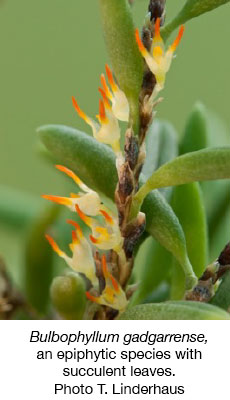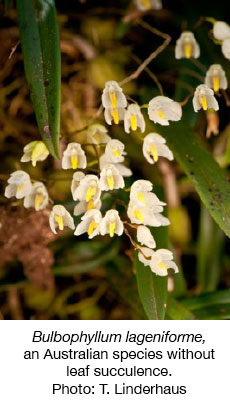<< BACK TO PROJECT LIST
Project: 360/2024
Title: Patterns of diversification and trait evolution in Australasian orchids
Applicant: Consolata Nanjala
Institutions: Australian Tropical Herbarium, James Cook University, and CSIRO
Orchids in Australia account for over 1,600 species, 90% of which are endemic to the region. A recent study estimated that orchids originated in Laurasia (an ancient supercontinent in the Northern Hemisphere that included North America, Europe, and Asia), with their oldest ancestors dating back to the Early and Late Cretaceous periods. However, most of the present-day orchids, including those in Australasia, have evolved relatively recently, over the past 5 million years. The high morphological, physiological, and ecological diversity of Australasian orchids present excellent opportunities for macroevolutionary studies.
This project aims to investigate the evolutionary processes driving species diversification in Australasia, with a focus on the evolution of photosynthetic pathways within lineages of the diverse orchid genus Bulbophyllum across its distribution. Previous research indicates that Bulbophyllum lineages exhibit a combination of CAM and C3 pathways. Bulbophyllum, therefore, provides a valuable model for studying diversification dynamics due to its species-rich CAM lineages, alongside their C3 sister clades. This research will collect tissue samples of Bulbophyllum species for carbon isotope analyses to explore the evolution of their photosynthetic pathways. Additionally, it will sample the ecological and phylogenetic diversity of Bulbophyllum species for genome size estimation analyses. By integrating these data with phylogenomic information, the project will elucidate evolutionary relationships and correlations between character traits and diversification dynamics in Australasian orchid lineages. Additionally, the findings of this project will provide valuable insights into orchid evolution in the face of a changing climate, informing conservation of this vulnerable component of the Australasian flora.
This project is carried out in collaboration with the Royal Botanic Gardens Kew and the Singapore Botanic Gardens.


